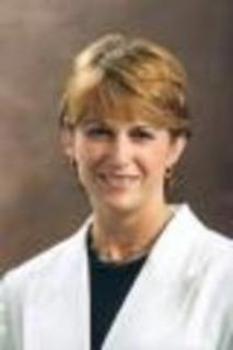I am going to be sharing with you our experience at Cincinnati Children’s Hospital and the way in which we approach processing disorders. We are very fortunate in that, in the last five years, we have been connected on Epic (electronic health record software). The disciplines with whom we need to speak are not necessarily in the same building; in fact, many times, we are not even in the same town, because we have a lot of satellite locations. But with Epic, we still have immediate access to each other’s evaluations. That is key, particularly when we have situations where we are trying to narrow down exactly what a child’s processing issue is.
With that being said, let’s look at the learner objectives for today. The participants will be able to: define the evaluating and team roles of the SLP, the occupational therapist, the audiologist, the ophthalmologist, and the pediatric neuropsychologist for a child diagnosed with a processing disorder; describe the pediatric referral criteria for each discipline's area relating to a processing disorder; describe the behavioral characteristics (in the pediatric population) of the following processing disorders: auditory, visual, sensory, behavioral regulation/attention, and language.
The Interdisciplinary Processing Team
The team members that we have, at least at Cincinnati Children’s Hospitals, would include audiology, psychology, occupational therapy, and speech-language pathology, as well as optometry or sometimes ophthalmology. We are going to go through these elements.
You will notice that I had mentioned neuropsychology earlier, compared to psychology as stated in the above list. In our team approach, there are times that it could be a psychologist, or other times where it is a neuropsychologist. We work together in this particular area to determine what the processing issue is for the child.
Our overall team vision is to improve patient care by defining discipline-specific roles of information processing. Achieving this goal requires dissemination of educational information about each discipline’s role using consistent vocabulary and language. That might sound like an easy thing to do, but it has taken a very long time - many, many years - as a committee and team to work through what the consistent vocabulary should be. It can be very confusing to patients and families if we are all talking about the same thing but using different vocabulary. We have worked very hard to make sure that all of our interdisciplinary team members know the vocabulary to use. We try to remain consistent on that when we are counseling families. This allows both the referral sources and the families to achieve the most expedient and valid assessment and treatment for the child.
Now, let’s first discuss some details so that our vocabulary is indeed consistent. The Wikipedia definition of processing describes “the act of taking something through an established and usually routine set of procedures to convert it from one form to another.” An example would be a manufacturing procedure such as processing milk into cheese. Processing can also refer to an administrative type of procedure such as processing paperwork to grant a mortgage loan.
When we talk about information processing, that is essentially the change or the processing of information in any manner detectible by an observer. Again, we try to keep things in very generic vocabulary for the families and then narrow it down by discipline. For us, that has really seemed to help the families get a better understanding of what we are talking about.

